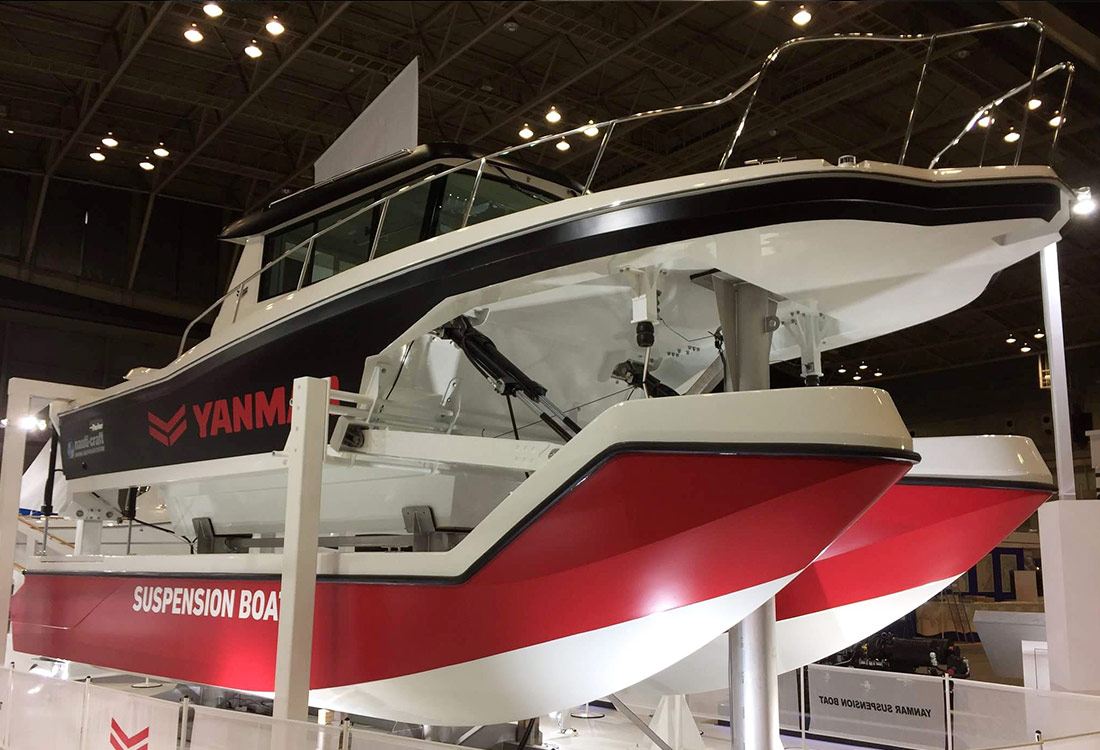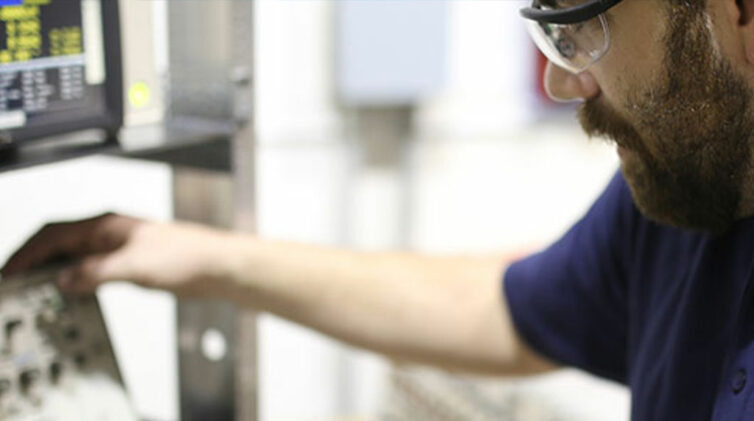Developed in conjunction with diesel engine and commercial and recreational GRP boat manufacturer Yanmar, Nauti-Craft’s innovative marine suspension system was shown last weekend on a Yanmar 10-metre boat.
Nauti-Craft is the marine equivalent of the road suspension system developed by previous company, Kinetic Suspension Systems. Both products were invented by Chris Heyring, now chairman of Nauti-Craft that is based in the south-west WA town of Dunsborough.
Kinetic, which has its technology on the latest Toyota 200 Series LandCruiser and Prado, Nissan Patrol and McLaren MP4, was bought by US aftermarket corporation Tenneco – parent of Monroe – in 1999 for $A55 million.
But Mr Heyring has adopted the system to the water and started Nauti-Craft.
Yanmar, which aside from famously making a range of diesel marine engines has a substantial boat-building operation, will now test the craft with sights set on the high-end recreational fishing boat market and commercial applications.
Speaking with GoAutoNews Premium from the Tokyo show, Nauti-Craft managing director and former managing director of Orbital Corporation Ltd, Ken Johnsen, said his company was working with a number of boat-makers.
“We are pleased that Yanmar is first boat-maker in the world to show a boat that incorporates Nauti-Craft technology,” he said.
“This is a demonstration of Yanmar’s desire to advance in the world of boat design and offer its customers safer and more comfortable products.”
Yanmar’s 10m boat shown in Tokyo is on a stand that demonstrates the movement of separate hulls of the boat as it “walks” waves. Coincidentally, the show displayed four vehicles using Mr Heyring’s inventions – a Toyota Prado and 200 Series LandCruiser, the Yanmar boat and a McLaren.
The show was attended by Mr Heyring, Mr Johnsen and Australian ambassador to Japan, former WA premier and owner of Perth boat retailer Court Marine, Richard Court, son of Sir Charles Court.
Nauti-Craft claims that its marine suspension system has a reduction of up to 75 per cent in vertical accelerations (G forces) that passengers experience during travel in rough seas, compared with a boat without suspension.
It can also allow the deck to remain stable when passengers are getting on and off the boat in rough water. This has opened up the potential for the system to be marketed to wind-farm operators with offshore generators.
“There is the potential for boats of more than 10 times the value of the Yanmar concept boat by looking at the offshore wind-farm market where boats have to push onto the wind turbine pylons, often in rough seas, for repairs and maintenance to the wind generators,” Mr Johnsen said.
“There are 400 wind-farm vessels in service around the world, mainly in Europe. There is expected to be three times that number of boats operating within 10 years, making a potential of more than 1000 specialised boats.
“Europe is increasing its wind farm operations, but there are more farms opening in offshore areas of China, the US and in the Bass Strait in Australia.”
Mr Johnsen said indications are strong that Yanmar will take its 10m concept boat and develop various recreational and commercial applications.
Nauti-Craft has sold a license to Singapore-based Strategic Marine which has funded the development of a wind-farm vessel and is now seeking wind-farm customers.
The WA company’s technology is also being used by a luxury quadmaran vessel under construction in Dubai.
“We are also exploring a South American groups, which operates pilot vessels, and military applications in the US and Australia,” Mr Johnsen said.
“There are also some discussions just started with US companies on a trailer boat design.”
Background:
The Nauti-Craft design has independently articulated hulls that are connected to the main body of the vessel with an interlinked hydraulic suspension system.
These hulls – two or four – react independently and instantly to wave motion, absorbing the bumps without transmitting high forces to the deck and superstructure.
This is claimed by Nauti-Craft to provide a high level of ride comfort as well as improved control and stability, both stationary or travelling at speed.
The system means the vessel can operate in seas to 3m at speeds exceeding 22 knots. When stationary, the hulls and deck can be separated automatically by 2.5m (in the Strategic Marine version), though the reach can be extended depending on the vessel.
The suspension-equipped catamarans were originally developed for commercial applications such as delivering crews to service wind farms in the North Sea. More recently the concept has started attracting interest from the high-end recreational market.
By Neil Dowling















 Read More: Related articles
Read More: Related articles

